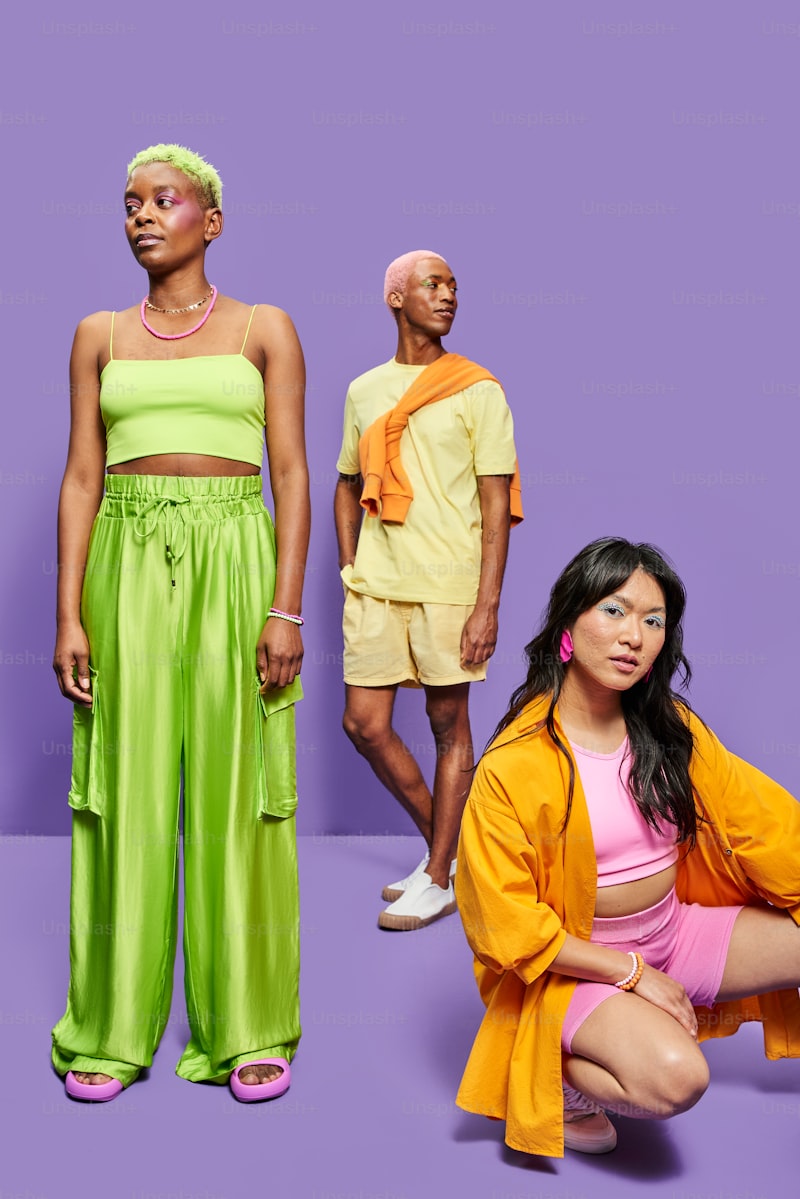Influence of Cultural Trends on Dress Choices
The Dynamic Relationship Between Culture and Fashion
Fashion is not merely about clothing; it embodies a complex tapestry woven from culture, history, and personal identity. The influence of cultural trends on dress choices manifests in various ways as styles evolve in response to societal changes, technology, and global interconnectedness. This article aims to explore how cultural trends shape what we wear, the implications for the fashion industry, and how individuals can navigate their personal style amid these shifts.
Understanding Cultural Trends
Cultural trends refer to the collective attitudes, practices, and tastes that characterize a particular society or community at a given time. The interplay between culture and fashion is nuanced, as dress choices often reflect broader societal values and norms. Clothing can signify class, gender roles, and cultural heritage, making it a powerful medium for self-expression.
The Impact of Historical Events
Historical events play a pivotal role in shaping cultural trends. Icons and movements can shift public sentiment dramatically, influencing dress choices significantly. For example, the 1960s counterculture movement introduced bold colors, psychedelic patterns, and a break from traditional gender norms in clothing. The influence of significant events can be categorized into several areas:
| Event | Influence on Fashion |
| World War II | Utility clothing emerged due to material scarcity; simplistic and functional styles became popular. |
| Women’s Liberation Movement | Feminine styles were challenged; trousers became acceptable for women. |
| Social Media Revolution | Instant sharing of styles led to diverse fashion trends and the rise of influencers. |
Cultural Identity and Fashion Choices
Dress choices often serve as a medium through which cultural identity is expressed. For instance, traditional attire is frequently donned during festivals or ceremonies, allowing individuals to connect with their heritage. In multicultural societies, blending various cultural styles enhances personal expression. This intersectionality creates a rich fabric of fashion, allowing individuals to mix and match elements from different cultural backgrounds.
Globalization and Fashion
Globalization has significantly impacted cultural trends, leading to a fusion of styles across borders. The accessibility of international fashion influences via the internet allows individuals to adopt and interpret styles from various cultures. While this can lead to cultural appreciation, it can also risk cultural appropriation. Individuals must navigate this delicate balance when making dress choices, ensuring respect for the origins of the styles they choose.
The Role of Celebrities and Influencers
Celebrity culture plays an essential role in shaping dress choices. Celebrities often serve as trendsetters, influencing public perception of what is fashionable. Social media platforms, including Instagram and TikTok, have accelerated this trend, allowing fashion influencers to reach wider audiences than traditional media. Here are some ways in which celebrities impact cultural trends:
- Red Carpet Events: Fashion choices at prestigious events like the Oscars can dictate seasonal trends.
- Collaborations: Brands often collaborate with celebrities to create exclusive collections, combining popular culture with fashion.
- Instagram and TikTok: Influencers leverage these platforms to showcase styles, inspiring followers to adopt similar looks.
Fashion Weeks and Cultural Representation
Fashion weeks around the world, including New York, Paris, and Milan, often serve as a stage for cultural representation. Designers from diverse backgrounds showcase their collections, drawing on their cultural heritage to create unique styles. These events not only highlight current trends but also celebrate the richness of cultural diversity within the fashion industry. Nonetheless, challenges persist regarding inclusivity and representation, prompting criticism and calls for reform.
Environmental Awareness and Sustainable Fashion
In recent years, a growing cultural trend has emerged around environmental awareness and ethical consumerism. People are becoming more conscious of the impact their dress choices have on the environment. This has led to a rise in demand for sustainable fashion, promoting eco-friendly materials and practices. Notable aspects include:
- Upcycling: Transforming old garments into new pieces to reduce waste.
- Sustainable Brands: Many consumers now prefer brands that prioritize environmental responsibility.
- Minimalism: A growing trend towards a capsule wardrobe encourages quality over quantity.
Personal Style and Cultural Influences
As individuals navigate the myriad cultural trends, they face the challenge of defining their personal style amid external influences. This involves critical reflection on the following:
- Comfort versus Aesthetic: Balancing personal comfort with the desire to be fashionable.
- Tradition versus Modernity: Incorporating traditional elements into contemporary styles.
- Identity Expression: Using fashion as a form of self-expression while respecting cultural roots.
Conclusion
In conclusion, the influence of cultural trends on dress choices is profound and multifaceted. Historical events, globalization, celebrity culture, and environmental awareness all play significant roles in shaping how we dress. As individuals navigate these trends, it is crucial to recognize the importance of cultural representation and personal identity. Embracing diversity and cultivating awareness can lead to a more inclusive and creative fashion landscape. As you explore your personal style, consider the broader implications of your choices and aim for a blend of cultural respect and personal expression.
When making dress choices, take note of the following suggestions:
- Engage with diverse cultures respectfully and thoughtfully.
- Consider the impact of your clothing on the environment.
- Use fashion as a tool for self-expression, honoring your unique identity.
- Stay informed about cultural appropriation and its implications in fashion.
By understanding the interplay between cultural trends and our dress choices, we can curate a wardrobe that reflects both our individual styles and the rich tapestry of global culture.